#before I post the final thing
Explore tagged Tumblr posts
Text


#This was the second thing I did for hot entropolic summer#but I'm waiting for wander from the DE discord to reply to me so I can credit them for the Tereesz and Jesper designs#before I post the final thing#Smiles big and wide. It'll probably be posted tomorrow#disco elysium#sacred and terrible air#parcark art tag#WIP#This was drawn w my finger btw I promise that's not how I would usually draw harry#sunday friend#harry du bois#ambrosius saint miro#inayat khan#tereesz machejek#jesper de la guardie
72 notes
·
View notes
Text
love when ppl defend the aggressive monetization of the internet with "what, do you just expect it to be free and them not make a profit???" like. yeah that would be really nice actually i would love that:)! thanks for asking
#yes i want things to be free like ??? that is not a weird desire#'but but it costs money to keep up' ok and? how is that my problem#the government has plenty of murder dollars they could reallocate a few to make internet services universal if they wanted#also these companies were perfectly capable of supporting themselves before the internet got drowned with ads so ¯\_(ツ)_/¯#edit: muting notifs on this post bc new additions have kind of petered out#so no one feel bad about adding something someone else has said‚ it is not bothering me im just trying to keep my#notifs page cleanish lol#also since i saw some people are being redirected to read my tags: firstly hiiiiii this is a special secret message for you:3#secondly i have learned since making this that the reason they were able to support themselves previously was because#of investors bankrolling everything#and theyre now finally realizing that theyre never going to actually make a profit and arent as willing to invest#however thats just a minor correction and doesnt change my overall point#once again. so many murder dollars#so thats why im just adding it here in the tags rather than making an actual correction#anyways . love yall 💕#origibberish#bigger gibbers
59K notes
·
View notes
Text
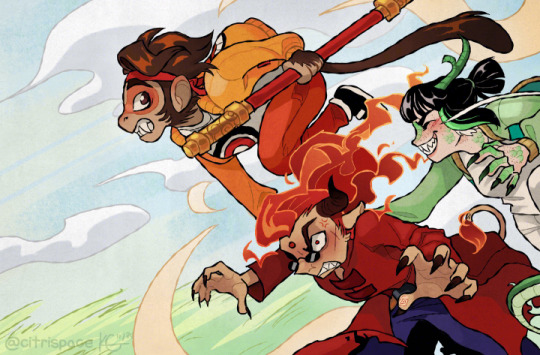
Ready, set, GO!
#digital art#lmk#monkie kid#lego monkie kid#lmk mk#lmk red son#lmk mei#i dont think ive posted drawings of them before but theyre soooo fun i love them........#traffic light trio#todays rekindled monkie kid obsession brought to you by 'i finally remembered to watch season 5'#all things considered. it was very good!#nobody does it like the crew at flying bark but i think wildbrain did very good work#and im very excited to see what they put out next for it
924 notes
·
View notes
Text

double ?? upload ???? yeaaaahh i've gotten FASTERRrr for whatever that's worth so complementary blyla because guess what i miss them too (nobody was surprised by that)
#star wars#clone wars#star wars the clone wars#blyla#artists on tumblr#listen i just have a thing for jedi + clones it seems and we cannot forget dartain the ogs (i will draw that tonight + tomorrow not now)#tcw made aayla so cool bro i love her#can you tell i've been on a mellon_soup kick !! i love her references so much bro#one day i will draw foxiyo. that day may be tomorrow i don't know#prequel-era ships are elite sorry everything else is Lame except for han/leia rebelcaptain and kanera (reylo's fine ig)#tcw is also the only thing that salvages anidala for me however! this is not an anidala post i am getting so off-topic whoa#i am unmedicated.#anyway yayyyy double upload#by the way in my head the accelerated aging thing just straight-up doesn't exist#cuz it's one of the dumbest things star wars has ever done i think it just doesn't make sense#anyway ^^)b#listen i'm not ALWAYS gonna go the cheap route and do the gradient thing instead of color i just don't wannaaaa. too much work#“jedi can't have attachments!!!!” and you can't have fun apparently#besides attachment and .-+ love +-. are different things and the jedi USED to know that before they contracted stupid disease#aayla secura#commander bly#would've drawn bly's armor cause it's cool but friiiick dude i already did it for rex and I AIN'T DOIN' IT AGAIN#(will do it again for darman because i'm a masochist)#hey. he's a commando it's different#at least i finally get to throw my etain headcanons into the ring#why am i talking about other ships on a blyla post. whatever#i'll color something eventually. sketching is just significantly easier and more fun#actually scratch that heck y'all i'll do what i wanna do#(affectionate dw)#my art
503 notes
·
View notes
Text

Sometimes a day makes you want a Starscream to bite and squeeze
#guess who got their final scores back ahaaa#class avg was 60 percent 😭#also I have blocked the transformers tag on TikTok that place is a hellhole#bit of a vent here but it’s so crazy#I was talking to a person I didn’t even follow a while back and we were making jokes like yeah the autobots ship megastar#on my fyp a couple days later and I see them reposting “shipping megastar is bad and gross’ like bruh what#I saw one of my followers commenting ‘yeah can’t believe it’s so popular’ I HAVE POSTED MEGASTAR BEFORE WHAT ARE YOU DOING HERE#I POSTED MY STARSCREAM AND MEGATRON FIGURES RAILING EACH OTHER#I only started posting cause I was like eh if it’s getting banned might as well#these people were poisoning my fyp smh#I’m convinced it’s just a moral superiority thing like all of those people who thought abo was so cringe and then someone was like#‘I secretly like abo’ and everyone agreed that they also like abo and it’s not that weird anymore#Ngl though. it is kinda sad but also kinda funny#sorry for the rant cause I talked about it before and I don’t want to keep on talking about it but those two baffled me#transformers#transformers fanart#megastar#megatron#starscream#transformers g1#megascream#maccadam#its like watching one of those religious couples where one of them is gay and theyre like 'I am working through my gay to be straight'
701 notes
·
View notes
Text
Steve Harrington was wearing a Hellfire t-shirt.
It was far too tight on him, the name of the club stretched wide over his chest. The sleeves dug into his biceps, making them pop even more than they usually did, and that was before he crossed his arms.
Worse?
It was short.
Which meant the damn shirt was constantly riding up to give everyone a nice show of the smattering of hair that trailed down past the band of Harrington's jeans.
The same hair that Eddie was determinedly not looking at.
“Henderson, a moment?” He crooked a finger, a smile on his face that was more feral than welcoming.
Rather than cower or even acknowledge that Eddie was two seconds away from murder, Dustin just gave him a gummy grin, all too pleased with himself and his scheme.
“Sure Eddie. Steve, don't just stand there, go help set the booth up!” Dustin gestured to Hellfire’s sad little table, crammed all the way in the back of the gym.
Jeff and Gareth both reacted to the suggestion like a rabid squirrel had been set upon them, nervously inching towards the other side of the booth as Harrington sighed and--shockingly--did as he was told.
‘What,’ Eddie thought angrily, ‘in the everloving fuck.’
“Do you guys mind if I set this down on the table?” Eddie heard Harrington ask as he stormed away, Dustin on his heel.
They wandered just around the corner, out of sight and hopefully, out of the fallen king’s hearing range.
Eddie wasn't sure if Harrington would try and white knight the very much deserved dressing down he was about to give.
Didn’t want to chance it, considering the downright weird relationship he had with Hellfire's freshmen.
(While he’d heard many a tale at his table regarding King Steve since the newest recruits had joined Hellfire, most of them dissolved into arguments without ever really going anywhere.
Best anyone could figure out was that Dustin and Lucas had a bad case of hero worship, while Mike owned a begrudging amount of respect that hailed from a series of misadventures.
The very same misadventures that, despite all protests to the contrary, was clearly some sort of babysitting gig for Harrington.)
Either way, plenty of the King’s court would have loved to take this opportunity to fuck with Hellfire.
Given that Henderson was absolutely too old to require a babysitter at fourteen, Eddie would bet his lunch money that was what Steve was here to do.
Something the club couldn’t afford since they were forever and always two seconds away from being stripped of club status and banned from school grounds.
“I would love to know what went through that all A’s brain of yours when I said,” Eddie whirled on Dustin when they were firmly in the clear, voice low and furious. “no Henderson, do not invite King Steve to help, he is an invading force and would ruin our peaceful kingdom!?”
He clasped his hands behind his back before leaning into Dustin’s face. “Because clearly whatever you heard wasn’t that.”
To Eddie’s continued frustration and confusion, Dustin did not treat this like the threat it was.
None of the freshmen had ever truly treated Eddie like a threat--had somehow skipped that part of the usual onboarding ritual entirely.
Eddie, town freak and drug dealer, who had cultivated his looks and craziness to such a degree that most everyone steered clear, wasn’t used to it.
Everyone had been afraid of him at some point in this shitty school. Jeff, Gareth, hell even half the staff--and that the dorky trio of fourteen year old's clearly thought this all was play-acting made his eye twitch.
Even if it was--maybe, sometimes--welcome.
“I know what you said, but I’m telling you I’m right.” Dustin argued immediately, and oh God, he was using that tone again.
A hand went up into the space between them and Eddie groaned aloud, knowing what was coming.
“First,” Dustin ticked a finger up, “Hellfire really needs the money. Even thirty dollars would get us new figures, but more than that, if we don’t fundraise, we can’t go to Gen Con!”
Dustin's eyes bored into Eddie’s, full of fire and conviction
“Yes,” Eddie said through gritted teeth, “but--”
“Second!” Dustin cut him off, and God the little shit even threw him a look while he did it, like Eddie was the one being ridiculous here!
“We had to fight just to get our table! Principal Higgins was in algebra today practically begging the mathletes to show up, but then tried to tell us we couldn't be here? That’s messed up!”
As if denying them a spot to fundraise was the worst thing that asshole had ever done.
Eddie sighed, breath blasting out of his mouth like a dragon’s.
“Because people think we’re freaks and satanists, Henderson. You don’t typically invite freaks and satanists to the school’s annual Holiday Bazaar. Especially not when all the local moms are paying to hawk their bullshit crafts and tupperware!”
It was more than that of course. The Hawkins High Holiday Bazaar was a tradition spanning several years now. Starting in the gym and spilling clear into the parking lot, everyone from local artists to even some local shops came to host a small table for the day, thus growing the event from a small school fundraiser to a Hawkins' “must-do.”
Half the fucking town was here to sell, and the other half was here to shop, which meant Principle Higgins had wanted Hellfire banned from the fucking premise.
Eddie had been forced to pull out one of his trump cards he’d been saving--blackmail on Higgins that related to the man’s not--so--legal addiction to Percocet that he relied on Reefer Rick for.
(And bless Rick, that hadn’t been the only tidbit he’d shared with Eddie about Higgins. That information, however, Eddie needed just so the asshat wouldn’t give him the boot from school entirely.)
The only reason Eddie had pulled it out to secure their rightful spot, was because of Gen Con.
It was Hellfire's White Whale, their grand adventure, and this was going to be his year to take his friends on one last epic quest to make memories of a lifetime surrounded by people who understood them.
Come hell or high water, Eddie was going to Gen Con--but being able to fundraise by selling wares and baked goods at the stupid Holiday Bazaar would go a long way to help.
Even if he had to listen to the band repeatedly play ear-bleeding renditions of Christmas songs.
“All the clubs get to have a table, and we’re a club!” Dustin continued, like it was that simple. “But you know, I get it. We look scary.”
He gestured down to his own Hellfire shirt, before gesturing towards Eddie’s entire outfit.
Like Eddie didn't know what he looked like, let alone that he'd made this outfit specifically to scare people away from him.
(And maybe add some rockstar flair to this dinky little hick town.)
“You know who doesn’t look scary?”
Dustin held out his hands and swiveled his body like he was presenting a prize instead of gesturing in the vague direction of;
“Steve!”
Eddie’s left eye twitched.
‘You can't kill him, you need his character for the campaign.’ He told himself firmly, even if he envisioned strangling Dustin like a chicken.
Cartoon squawking and all.
“The King isn’t going to help us fundraise, Dustin.” Eddie said, in an effort to break down why Harrington couldn't be here. “He's just going to cause us problems that we can’t afford to have.”
So many problems, half of which Eddie couldn't think of because if he did, he'd start spiraling.
“Really? Because as you keep saying, Steve used to be the King. People love him, Eddie! Mom’s love him.”
Eddie had pulled himself back up to his proper height a while ago, and now rocked back on his heels while he ran a hand down his face.
There was no getting through to Henderson when he was like this.
Not unless Eddie really lost it, and it was practically club lore that he only lost it when someone missed an important game.
One cannot keep a herd of sheep if their flock is terrified of them, after all.
(“Perhaps you’re just a giant fucking softie.” Tiff, one of Hellfire’s graduating members, told him once. “Honestly dude, I bet you throw up stuffing.”
“Shut up Tiffany, your choker is on backwards again.” He'd spat back, completely offended and not at all trying to distract from how true that was.)
“We can’t be satanic if Steve’s the one selling cookies!” Dustin finished doggedly.
“We’re not even selling cookies--that’s not the point!”” Eddie shook his head, hair flying. He was not going to be sidetracked, he wasn’t!
“Harrington is going to end up siding with all the moms about how we’re all wasting time with D&D, if he even spends the whole time at the table. Is that what you want?”
He stuck out a ringed finger, poking at Dustin’s chest.
“Every single person who comes by our table has to be convinced D&D is a writing and math based game. Good for the mind and souls of growing, impressionable children. A game that got a bad rep because of a few silly images.”
A pitch he and Tiff had come up with during the third or fourth time they had to convince an adult that no, just because their shirts had a dragon on it, didn’t mean they were summoning demons in the drama room.
“Harrington can’t do that because Harrington doesn’t even know how to play!”
This Eddie punctuated by throwing his hands in the air.
Given the startled look of the mother-daughter duo passing him by, clearly was louder than he’d intended--but screw it!
He was right!
Hellfire was in a precarious position to both fundraise and do a little damage control among the slightly smarter members of this shithole small town, and Harrington rolling his eyes and gossiping about how stupid it was would hinder that.
“Okay, first of all, Steve’s played D&D with me and he didn’t even kill his character.” Dustin said it like he was unveiling a smoking gun and not lying through his ass--which Eddie would absolutely be calling him on the second he was done talking.
Because King Steve? Play D&D?
'Ha!'
“And he’s not gonna say shit because we--me, and Lucas and even Mike!--asked him to help, and he helps when its serious. I know you have some weird grudge with him, but I’m telling you Eddie he’s our golden ticket to Gen Con!”
“You’re killing me. You are standing here, acting as a friend, when you are bringing a-- a dark force into the midst our of mission--” Eddie hissed, because he was losing the fucking fight and he knew it.
Dustin Henderson was not a man easily swayed.
Had never been, even when the odds were stacked against him (and Grant and Gareth were howling in his ear.)
The set of his shoulders and the glint of the little shithead’s eye meant Eddie wouldn’t be able to use him to oust Harrington--if he even could get him out without the dick causing a massive scene anyway.
As always when outgunned, Eddie flipped to dramatics.
“Betrayed! By my own chosen heir no less!” He moaned, pressing the back of his hand over his eyes as Dustin scoffed.
"Don’t be so dramatic! Steve will help, I promise! Just don’t be a dick to him.”
Conversation apparently over, Dustin turned around to head back to the table
Snidely, he added over his shoulder: “Plus we’ve all caught on to the heir thing Eddie. You tell everyone that so they do what you want.”
The dick.
“You’re too fucking smart for your own good. I’m gonna start feeding you paint chips to bring that IQ down.” Eddie muttered angrily as Dustin went back to their little table.
He gave himself a moment to get his shit together and stomp a foot like a child when Dustin was around the corner and thus couldn’t witness it, before following his wayward sheep back.
Could only pray to any deity listening that Henderson’s meddling didn’t blow up in Hellfire’s face.
#Door Prize#Alt S4#pre steddie#when is it not lmao#Holiday fic#well this is more of a warm up but it has another part#Ive just given up the WIPS are running my life#this is brought to you by a local high schools massive holiday bazaar I went too that had cute band kids running around#could not play music though bless them#I did FINALLY get re employed so things are slowing down but Im hoping to post one more chapter of SOMETHING before the end of dec#and probably the other half of this warm up shes short#steven harrington#eddie munson#baking#special appearance by Adopt a Jocks Tiff#Robin pops up in this in the other half#Dustin Henderson#and his scheming#Steve can bake#0o0 fanfics#stranger things#stranger things fanfic#steddie
3K notes
·
View notes
Text




another failed sneaking attempt
#i didnt even have this written down as an idea#i just started drawing cause i was bored and here we are#i think this is the most effort ive put into a multi panel post yet#purple text on a grey background is very difficult to make look good so sorry if it hurts your eyes#getting better with expressions i thhink. no longer hate myself whenever i do that downturned mouth thing on uzi#and head shape im a lot happier with the rounded square kinda head shape i see in all the md art i like#forgot to draw on ns sketchpad in the last panel. woopsies#theyd probably have a little bit of trauma regarding the solver stuff but like#theres no way in hell uzi is turning down the ability to become a sick as hell nightmare worm#for all its evil stuff the solver was edgy as hell and i think she would be totally on board with that#honestly i think i just wanted an excuse to draw solver worm stuff#i doodled it a bit ago and liked the way it came out so i wanted to draw it more#my hand is cramping im wrapping this up#art#murder drones#murder drones uzi#uzi doorman#murder drones n#serial designation n#the worm bit in the final panel is solely because i remembered i can use gausian blur to give the illusion of depth or whatever#never actually tried that before i think so here i am#oh yeah uhh#nuzi#i guess. i think this counts#im not well versed in the Fandom Rules
684 notes
·
View notes
Text
maybe if these people spend a lick of their time creating for the media they love instead of harassing other people with what they enjoy, they'll be less miserable.
if you're wondering why there's less fan content here over the years.... it's this. this is why.
#and these ppl will finally understand how tiring it can sometimes get when you create things FOR FREE lol#seeing the ppl i follow get harassed for things they like and do is so sad ughhhhhhhhhhhh sending them all big hugs#its also why i have inboxes closed lol#also theres less interactions now which some creators really appreciate having before now theres 0 interactions in fandom#i personally dont rlly care and just post gifs because i want to but many ppl love having interactions and tunglr being more instagram-like#is also not really helping with how fandom is supposed to be which is a community#and its also why discord is now super popular as a fandom space#i dont blame em ngl bc i prefer discord too since servers can be moderated and looked after when something hella toxic is happening#personal tag
425 notes
·
View notes
Text
do yall ever think about bruce/batman!clone danny standing in front of his bathroom mirror after finding out he was a clone and silently tracing his face. The slope of his jaw and point of his chin. The high angle of his cheekbones and the shape of his eyes, the curve of his brow bones and the shape of his nose. The volume of his hair and the way it curls and gets fluffy when it gets too long.
His hair is black the same way a crow's wing is black. His dad's hair is black the same way a black bear's fur is black. His dad's eyes are blue like the ocean is blue. Danny's eyes are blue the same way a glacier is blue.
His dad has a square jaw and straight flat hair, and he tans and gets a face full of freckles when he's out in the sun for too long. Danny burns like a lobster and his face remains untouched. Danny has a sharp jaw and tall cheekbones, and Sam says when he's not smiling there's almost something regal about him. You would never call Jack Fenton "regal" when he's not smiling.
Sam says when he's not smiling he looks scary the same way a stone statue is. Jack Fenton when he's not smiling looks scary the same way that german shepherd staring at you across the street is.
Do you ever think he grew up wondering if he was adopted. Because of course, he has black hair and blue eyes like his dad. But having the same color doesn't make you someone's child.
Or, worse, things he's heard from the other kids and the other parents and even some of his teachers growing up; that he was the product of an affair. And that his dad was just too stupid to notice. And Danny would defend his parents until the day he died, because Jack Fenton wasn't an idiot and Maddie Fenton wasn't a cheater.
But doubt comes in with fickle tongue. his parents swear up and down that he is their child when he asks about either. That Danny just had his grandparents' features, but he was their son and they loved him.
But Danny doesn't look like either of his parents. His mom's eyes are blue like an aquamarine and Jazz's too. And they burn like lobsters in the sun too, but Jazz gets freckles on her face and so does Maddie. And as Danny grows up he doesn't bulk up or get stocky like his dad did, and when he hits puberty he doesn't shoot up like a tree like Jack Fenton did.
He stays small, and they say he's a late bloomer (and he is), or that he just has his mom's height. But he's fast and has good stamina, and some days it feels like he's built entirely different from his family. That the things they went through growing up just didn't apply to him. Jack and Maddie Fenton both had acne and breakouts when they hit puberty, and Jazz inherits it and he's seen the amount of skincare products she keeps on her side of the bathroom.
And then he hits puberty and breaks out maybe once or twice, but his skin stays clear for the most part and the problems and changes his dad went through just don't happen to him.
And the truth is worse than all of the lies.
How horrifying.
#dpxdc#danny fenton is not the ghost king#dp x dc#dp x dc crossover#dpxdc crossover#dpdc#danny fenton is a clone#clone danny fenton#clone danny#thinking about the inherent trauma that comes with growing up as a clone and not knowing and questioning everything about yourself#thinking about the amount of effort and lying that Jack and Maddie would've had to to do if they wanted to pass Danny off as their bio son#the MEDICAL RECORDS#danny's medical history is completely different from theirs. any generational health problems the waynes have would/could be passed down to#danny and he's completely oblivious to it up until the reveal. he'd have no idea about any medical risks until they hit him before that.#so many little things and inconsistencies that would just build and build and build until it finally came to a head and the truth came out#forever and ever and ever fascinated by the underlying horror of being a clone. there's a horror in being cloned but there's also a horror#in BEING a clone. like yes he could've always known from the start and that comes with its own set of issues BUT. just. him not knowing#for the longest time. the lies and deceit and betrayal. you know how adopted kids come out and talk about how they didn't know they were#adopted for the longest time and how traumatizing and betrayed they felt when they're finally told 15-20 years down the line? yeah that#i imagine finding out you're a clone is a lot like that.#i read a book in middle school once abt a girl moving to a new town with her family and getting these horrible nightmares and noticing how#everyone was acting strange around her. one of her nightmares was about the 30yo police officer being a shambling corpse talking to her#and at the end of the book she finds out she's actually the clone of a dead older sister and the police officer was her sister's boyfriend.#and she was in gymnastics but quit and her parents were so disappointed bc the og sister was a champion/award winning gymnastics player#and i never did finish the book but god am i reminded of that.#i love reading the dpxdc clone danny posts and they usually have him brush off being a clone which is literally totally fine but duUUDE#just imagine his own horror over it. its SOOO good
568 notes
·
View notes
Text
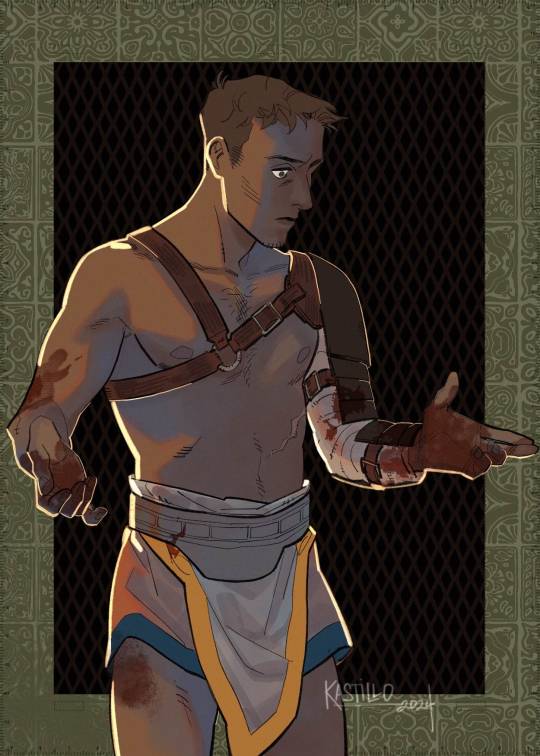
it's time for spartacus :)
#crassus lost his unfair +20 Emotional Appeal Due To Life Circumstances but gained a much more important#+3000 Most Interesting Character Of His Generation advantage which means he's finally returned to A Character with Characterization#which IN TURN MEANS i get to work on spartacus again babyyyyyy. we have something to work against. etc etc.#also I wrote a separate version of trikaranos entirely from calamus and (redacted)'s points of view to put the pin in Something Specific#not to be vague about it. i'll post it. if you've been here for awhile you will remember me saying something about the crassus comic#being the set up for the spartacus comic. the thing that bridges the two is the third character that's present in everything#which is not actually rome. it's The Crowd. in order to have a crowd one must create characters in a crowd. or whatever#im TIRED this month has been Too Much actually. there's something about getting bad doctor news the day before christmas#that feels borderline cartoonish.#spartacus tag#drawing tag
335 notes
·
View notes
Text




Middle Earth map mural is complete! Definitely the coolest thing in my house right now.
…and it only took ten paint pens and three seasons of the West Wing to finish 😅
(“But what about the resale value??” my relative asked me when I started this project. Look, I do not make an ungodly mortgage payment every month just to treat my house like a rental. That’s what they invented primer and paint for :))
Before/afters under the cut:


#lotr#tolkien#middle earth#I’ve been showing this to literally everybody I know. it’s my baby.#those are not the final side tables - still waiting on those to be delivered#i worked so hard to be able to afford the down payment on my house#and among all the less-fun serious update projects (bc i could only afford the cheapest house in the neighborhood 😅)#i have to throw in some fun things like this!!#i know I basically made the exact same post before when I was starting this but here’s the final version haha
501 notes
·
View notes
Text


I didn't want to post any isat fanart yet, but ough I am so unwell.. I must...
+ doodles

#murl draws#isat#in stars and time#isat siffrin#isat loop#isat mirabelle#isat fanart#uh uhh#isat spoilers#in stars and time spoilers#<- for the. the memory of sadnesses siffrin thing..#uhm yeah. im finally sane enough to have any sort of commitment to anything so i have been. very normal.#shaking. why is posting fanart on something you havent before so Scary#in stars and time fanart#whatever. puts this on the ground gently and explodes
321 notes
·
View notes
Text


Happy Merlin anniversary to all who celebrate!


I started making this cushion cover 2 years ago, after a lot of not working on it, I finally finished it this afternoon.




'upastige draca' is the incantation Merlin uses to make a dragon for his Pendragon after revealing he's magic. I had briefly considered thank you or hold me but @mid-n0vember's suggestion was better.
#merlin#hand embroidery#twabbbiih made a thing#bbc merlin#excalibur#dragon#sword#hope the photos are ok i'm posting this on mobile with photos taken on my phone#arthur pendragon#merthur#merlin fandom#merlin fanart#merlin emrys#Merlin bbc#needlecraft#needlework#It's wonky but i embroider more than actually make things so it's unsurprising#I am so happy I finally completed this :')#I had only done one tiny embroidery thing for merlin before this which is ridiculous considering how important the show is to me#so it feels good to have something I worked hard on and love for this show now
333 notes
·
View notes
Text
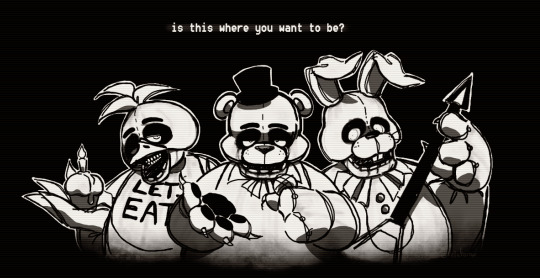
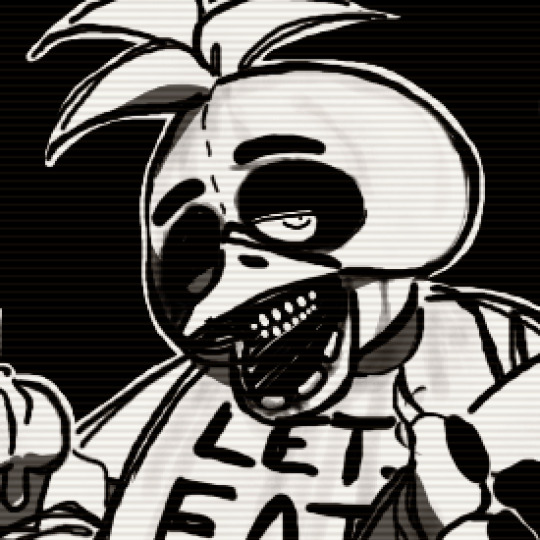
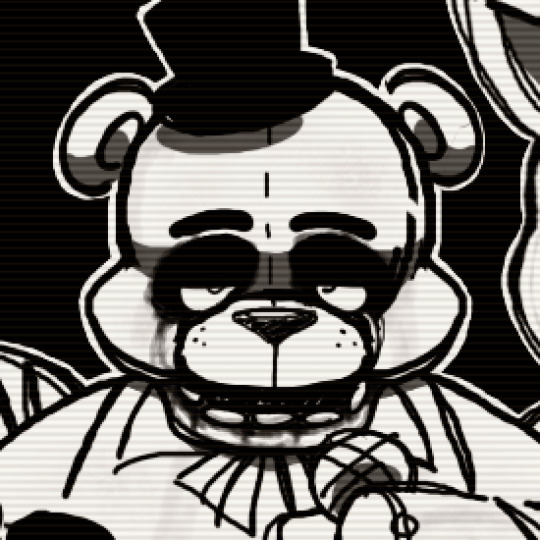
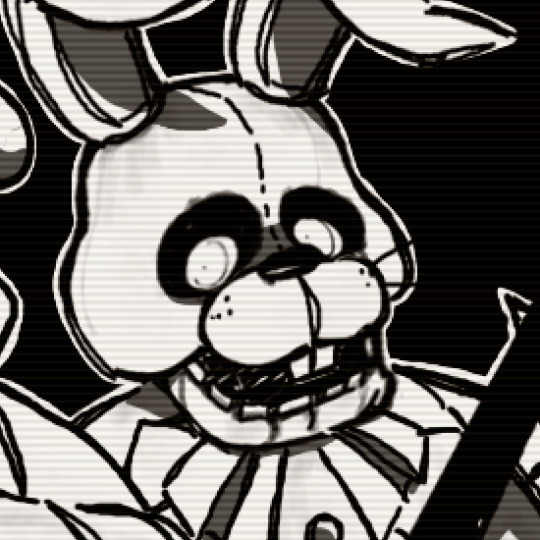
we've waited all 8 years, to fi~na~lly bring true our fears; newcomers to watch us play, & veterans rejoice - it's our day! 🎉
#uwu art#Five Nights at Freddy's#Five Nights at Freddys#FNaF#Five Nights at Freddy's movie#FNaF movie#Five Nights at Freddys movie#Freddy Fazbear#Chica the Chicken#Bonnie the Bunny#SHOUTOUT TO EVERY BLUE MOON WHERE I DRAW FNAF#& the one time ever ( today ) i actually post it#FNAF MOVIE WAITERS MERRY CHRISTMAS#this was done WAY back before the movie even got finalized iirc but hey today's a good day to polish & post it#artstyle based off of those silly big headed keychains as well as those old dragoart tutorial things#because GOD we don't get fnaf art like that anymore#i WILL be the change i want to see in the world#ANYWAY
2K notes
·
View notes
Text
NO BUT THEY FUCKING MET AGAIN
does Tumblr have only two (2) fandoms ever how did this happen

@autismswagsummit @autismswagreblogs
#mp100#autism swag summit#mob psycho 100#shigeo kageyama#reigen arakata#undertale#papyrus#sans#do you UNDERSTAND#BOTH OF THOSE. IN THE FINALS#DESTINY#sans befriending reigen behind the stage challenge#i will do a brave thing and post this before going to sleep as to not see the reaction#i hope donnie tmnt and shadow hedgehog will arson something together#it's very soul healing i know#also make no mistake this is homosexual
3K notes
·
View notes
Text
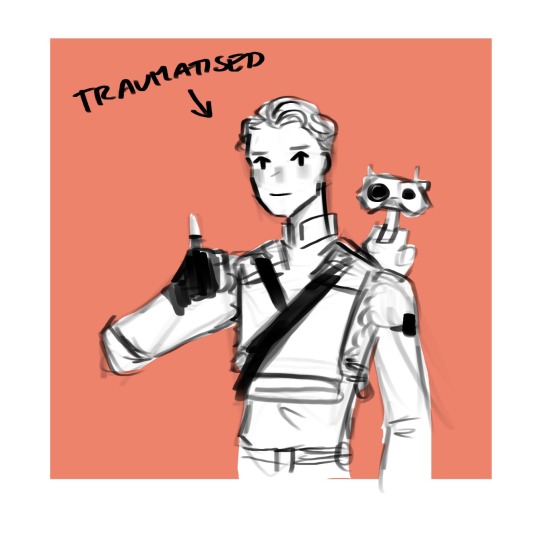
hands you all this cal to announce i’ve FINALLY finished fallen order (by which i mean i finally picked it up again after those couple hours i played a few months ago and then finished the whole game in 2 days lol)
#cal kestis#bd 1#jedi fallen order#jfo#star wars#my doods#anyway HOLY CRAP YOU MEAN STAR WARS WAS ALLOWED TO BE GOOD BEFORE ANDOR (2022-)??????????????? AND I DIDNT KNOW??#i love cal i loved the story i love how cinematic and amazing it looked good lord#i don't think i've ever played a game which gets such an amazing sense of scale across#like all the great temples or fallen starships were just Wow#like bracca ALONE gobsmacked me. seeing all these things i grew up watching in tcw as wreckage was like Ough Wow and THEY FELT SO HUGE#im just. wow!!#and THAT FINAL MISSION HUH. MOST FEAR INSPIRING VIDEOGAME ENCOUNTER EVER#my only criticisms are the awkward navigation/ level design in some areas and maybe the ending felt a bit lackluster somehow#i say somehow bc i dont get how lol#the reason im making this post past midnight is bc i got off work at 10pm and then immediately had to finish it LOL#anyway big heart emojis im very happy i sat down and actually played it finally#i want jedi survivor now LOL unfortunately it costs money and i have a rule i never buy games in release year lol#tbh i never rlly buy games til they're £20 or less
2K notes
·
View notes